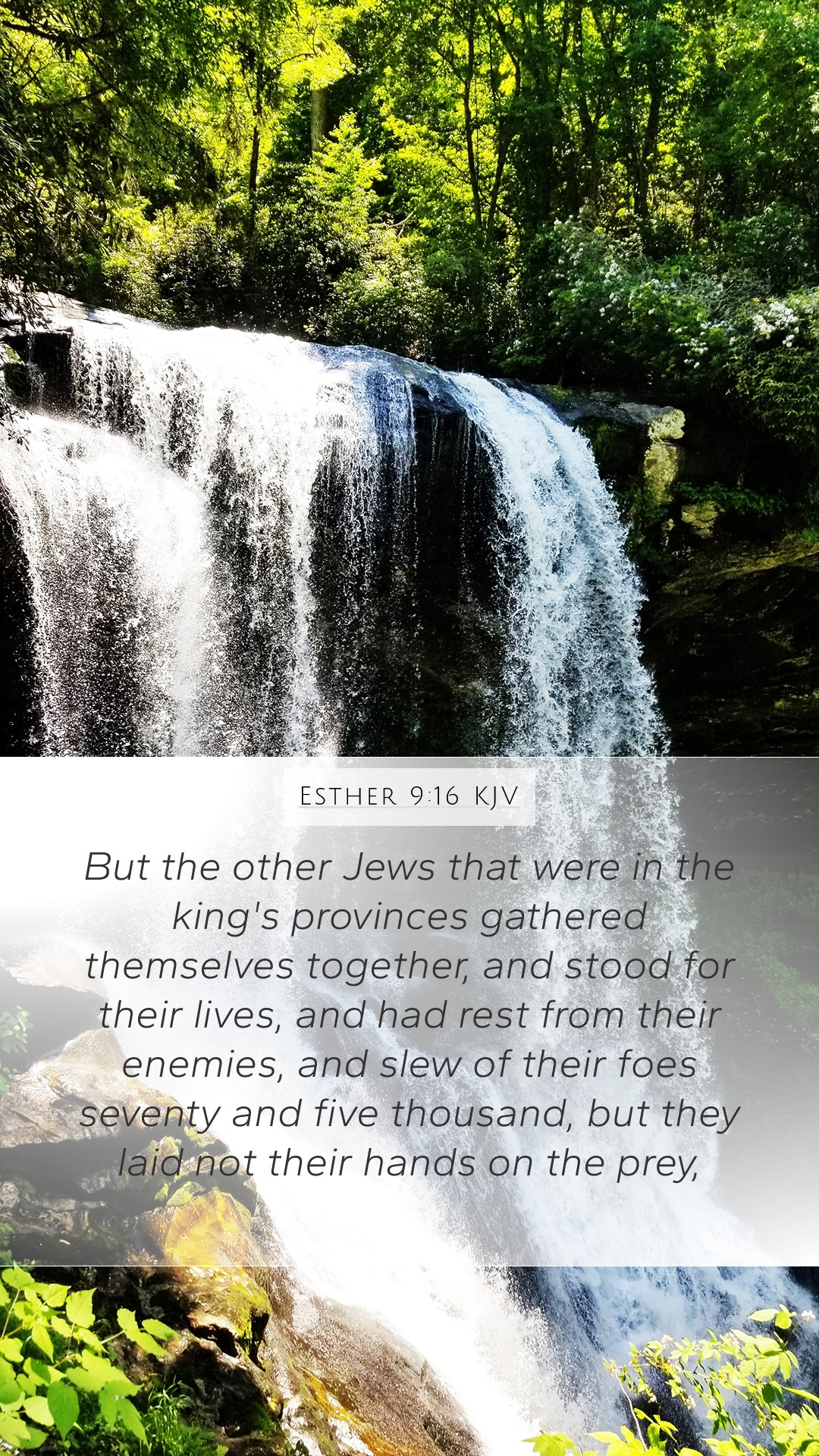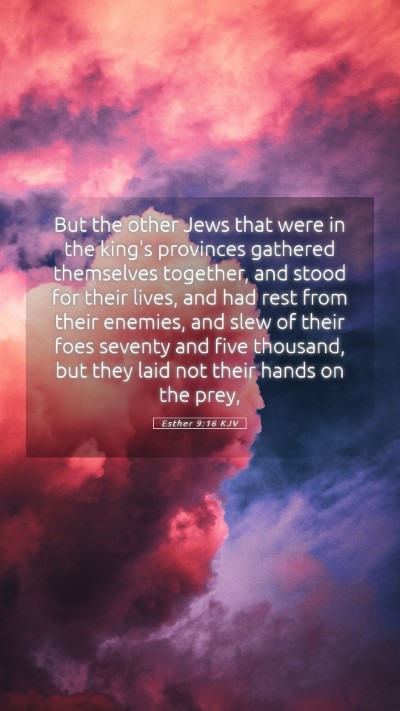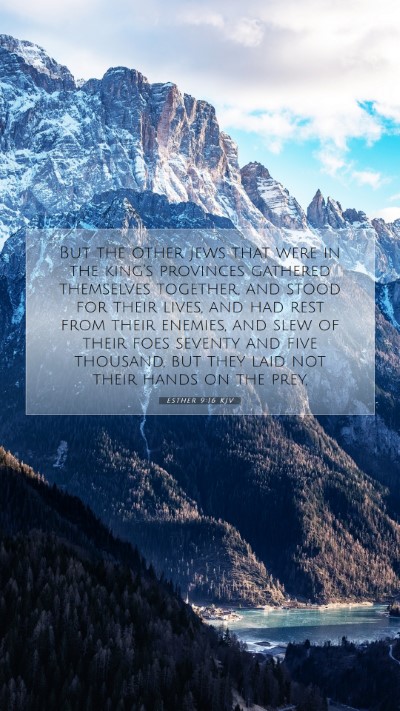Bible Verse Commentary on Esther 9:16
Bible Verse: Esther 9:16
"But the other Jews that were in the king's provinces gathered themselves together, and stood for their lives, and had rest from their enemies, and slew of their foes seventy and five thousand; but they laid not their hands on the prey."
Summary of Insights
Esther 9:16 captures a significant moment in the narrative of the Jews' deliverance from imminent annihilation. The verse highlights the actions of the Jews who were spread throughout the provinces of King Ahasuerus, contrasting them with the Jews in Shushan who initially engaged in the battle. Here, Esther 9:16 serves as a reflection of their unity and courage in the face of possible extinction.
Bible Verse Meanings
-
Divine Protection:
The passage illustrates God's providential care for His people. Matthew Henry emphasizes that the Jews did not act merely in their strength but relied on divine assistance to prevail over their enemies.
-
Collective Resistance:
The Jews gathered and united for their defense. Albert Barnes notes this emphasizes the importance of community and collective action in times of threat, a key aspect of biblical understanding for contemporary believers.
-
Mercy and Restraint:
Adam Clarke comments on the restraint shown by the Jews in not taking the spoils of war. This act signifies the righteousness of their cause—they killed not out of greed, but for survival and justice.
Understanding and Interpretation
This verse can be understood within a broader narrative of deliverance, thanksgiving, and the establishment of the festival of Purim. The actions described reflect a transformative period in Jewish history where they were liberated from oppression. Here are some key areas of focus:
-
Historical Context:
The Jews in the Persian Empire faced annihilation due to Haman's decree. The events in Esther provide a lens to understand the historical plight of the Jewish people throughout various eras.
-
Faith in Action:
This verse highlights the necessity of faith translating into action. The Jews didn't wait passively but took steps toward their own deliverance, illustrating a form of active faith.
-
Moral Implications:
The refusal to take the spoils signifies an ethical stand. It prompts believers to reflect on the moral ramifications of their actions, aligning with the thematic elements found across Scripture regarding justice and righteousness.
Application of Esther 9:16 in Daily Life
Esther 9:16 can serve as a powerful reminder for individuals today on several fronts. It challenges believers to:
- Stand united during difficult times—reminding us of the importance of community in faith.
- Exhibit restraint and righteousness in our decisions and actions, especially when faced with moral dilemmas.
- Embrace faith actively and seek divine assistance in facing personal struggles.
Cross References
- Exodus 17:8-13 - The battle against Amalek.
- Psalms 44:6-7 - Trust in God’s deliverance in battle.
- Proverbs 21:31 - The importance of preparation and divine victory.
Conclusion
In conclusion, Esther 9:16 serves as more than an account of historical events; it is a rich resource for understanding biblical principles of divine protection, communal strength, and moral integrity. Through various public domain commentaries, we can deepen our appreciation for this text within our Bible study groups and personal reflections, leading to enriched insights into the broader narrative of faith and deliverance.


